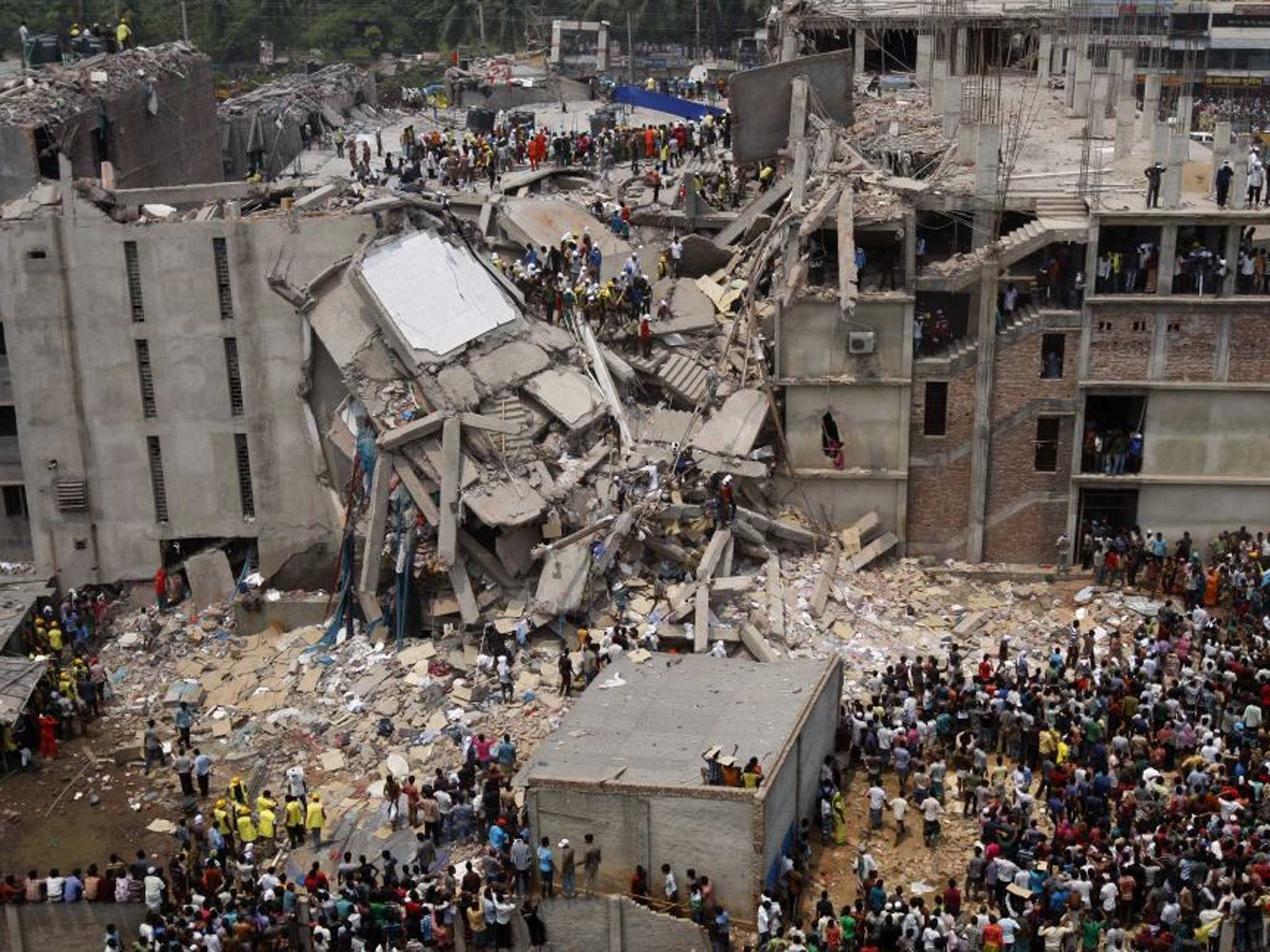Satyajit Das: The West wrings its hands over Asian workers, but carries on robbing them

DAS CAPITAL: In April 2013, the Rana Plaza, an eight-storey complex of clothing factories near Dhaka, Bangladesh, collapsed, killing more than 1,100. With its garments intended for export, the Rana Plaza incident quickly became “framed” from a Western perspective.
Foreign customers were deeply shocked, expressing concern about the unsafe and poor working conditions. Firms that sourced products from the factory went into damage control, concerned about reduced sales and “brand damage” from picketing and threats of consumer boycotts. Labour rights advocates, local unions and the International Labour Organization focused on the need for unions to represent worker interests effectively.
Economists argued that the tragic death of workers should not detract from an emerging nation on a positive trajectory. Outsourcing of manufacturing to Bangladesh had benefited the emerging country, providing work, improving wages and living standards. A plethora of statistics about growth, GDP per capita, nutrition, health life expectancy, education etc highlighting development successes were cited. Product boycotts or mandatory improvements in working conditions would set back development, resulting in far greater loss of life over time.
The proximate cause of the Rana Plaza collapse is relatively clear. According to the police report, the original 2006 approval was for a five-storey building, which was correctly designed and constructed. Subsequently, three more floors were added, with permission based on allegedly false documents. This overloaded the structure. Vibration from heavy generators used to provide standby electricity, essential in the subcontinent where there are frequent power cuts, contributed to the collapse. The fundamental causes are more complex.
In a globalised world, advances in technology and communication now allow each stage of production to be undertaken in the most efficient location. Businesses seek out competitively priced raw materials, labour and locations to lower costs, enhance profitability and ultimately offer reduced prices to consumers. In practice, production migrates to emerging markets, such as Bangladesh.
There is a race to the bottom in costs and working conditions, as emerging market manufacturers compete for the business of foreign purchasers. Everyone in the supply chain seeks to maximise market share and profitability, sometimes by cutting corners. In emerging markets, corruption and failures of government and business compound these pressures.
Lower costs come from lower wages. In Bangladesh, the minimum wage is $38 (£22.60) a month with typical take-home pay about $65, among the lowest rates in the world. Lower costs also come from less stringent regulations governing workplace safety, industrial pollution and waste disposal. Developed countries have been content to outsource problems of environmental standards and workers’ rights to emerging countries.
Desperately poor and seeking improved living standards for their populations, emerging countries embrace this model, which has been the first step in the development of nations in Asia, Latin America, Eastern Europe and Africa. Bangladesh is now one of the fastest-growing economies in the world, with parallel improvement in several measures of social wellbeing such as child mortality. It is growing at about 5-6 per cent a year, based substantially on its garment industry and remittances from migrant workers, employed under frequently poor conditions in richer Asian and Middle Eastern countries. The garment industry generates over $24bn in revenue, employing about 3.5 million, mainly young women, and is a major source of foreign currency.
Bangladesh must compete with Vietnam, Cambodia, Laos and Myanmar. Continuous cost pressures and competition make this economic model difficult to sustain. Prices have fallen by 10-12 per cent over the past five years. Return on investment in the garment trade has gone from 50 per cent to 20 per cent, which is close to the cost of debt in Bangladesh, effectively around 15-20 per cent. In turn, this drives further cost cutting.
The problems are compounded by an unstable and unpredictable political environment. Weak governments habitually persecute opponents. Corruption, rent-seeking and poor administration is pervasive. Building regulations are routinely not enforced. Many factories are located in buildings not intended for industrial use.
The Rana Plaza collapse caused public outrage, suggesting real resolve to implement appropriate standards. But the short attention span of the media and Western buyers has meant the ethical purchasing campaigns, except among the most dedicated, have lost momentum. Surveys suggest only about 10-15 per cent of buyers are likely to enquire where garments were made. In reality, an even lower percentage would change their buying decision, even if they were aware of the conditions under which the item was made.
The failure can be traced to financial considerations. To improve working conditions, costs will have to increase with the buyer paying more or everyone in the supply chain – manufacturers, importers, clothing companies and retailers – accepting lower profits.
The costs of raising safety in Bangladesh’s clothing factories to adequate levels is estimated at about $3bn over a number of years, a matter of only a few cents on each garment. Consumers, business managers and shareholders seem unwilling to accept this outcome.
George Orwell was prescient when he wrote in the 1940s that “we all live by robbing Asiatic coolies, and those of us who are ‘enlightened’ all maintain that those coolies ought to be set free; but our standard of living and hence our ‘enlightenment’ demands that robbery shall continue”.
Satyajit Das is a former banker and author of ‘Extreme Money’ and ‘Traders Guns & Money’
Subscribe to Independent Premium to bookmark this article
Want to bookmark your favourite articles and stories to read or reference later? Start your Independent Premium subscription today.

Join our commenting forum
Join thought-provoking conversations, follow other Independent readers and see their replies